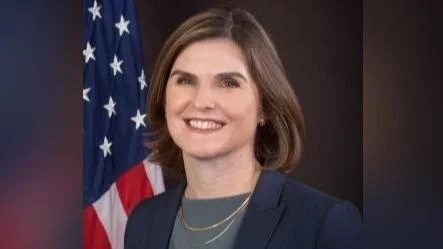The Diocese of Paterson in New Jersey, along with several foreign-born priests, is hopeful that proposed legislation will address their lawsuit concerning religious worker visas. The case reflects the challenges posed by changing immigration policies and the U.S. Catholic Church's increased dependence on international clergy due to a decline in domestic vocations.
Attorney Raymond Lahoud, representing the plaintiffs, expressed hope that congressional action could resolve the issue. "Our thought for this case is if Congress would (act) … the issue about having the priests stay here and not leave would be moot," he said. The lawsuit was filed last August against the Biden administration in the U.S. District Court in Newark, New Jersey.
The priests involved are Father Regin Nico Dela Cruz Quintos, Father Joemin Kharlo Chong Parinas, Father Armando Diaz Vizcara Jr., and Father Joseph Anthony Aguila Mactal from the Philippines, and Father Manuel Alejandro Cuellar Ceballos from Colombia. Defendants named include the State Department, Department of Homeland Security, and U.S. Citizenship and Immigration Services.
The diocese's legal counsel has described an "unlawful and unconstitutional alteration" in visa availability calculations as causing "profound immigration delays for noncitizen religious workers." U.S. immigration law differentiates between permanent immigrants and temporary nonimmigrants, with specific quotas limiting immigrant visas.
Religious workers can obtain either an EB-4 visa for permanent residency or an R-1 visa for temporary stays up to five years. However, a change announced by the State Department in March 2023 has extended wait times for EB-4 visas significantly.
According to an explanatory note from the U.S. Conference of Catholic Bishops (USCCB), this change forces many religious workers on R-1 visas to leave after five years without being able to adjust their status under EB-4.
The diocese noted that four priests' R-1 visas expired on May 14, 2025, while another expires in April 2026. Although some visas have expired, Lahoud assured OSV News that the priests remain safe in the U.S., having maximized their time outside to extend their current R-1 visas' lifespan.
Lahoud criticized federal rule changes as "arbitrary" and "unlawful," claiming they force priests to abandon their congregations once their lawful stay ends. Legal proceedings were stayed through March 31 of this year at plaintiffs' request.
A recent status report submitted by Lahoud highlights two bipartisan bills — known as “Religious Workforce Protection Act” — which aim to amend immigration laws for affected religious workers. Lahoud noted these bills are stalled in committee but hopes they will progress despite limited support.
Bishop Mark J. Seitz of El Paso emphasized during a USCCB assembly that unresolved visa issues could worsen over time given nearly 90% of dioceses rely on foreign clergy: “This is simply not sustainable for our ministries.”
The next court status conference is scheduled for July 23; meanwhile, Lahoud stressed urgency moving forward since ongoing delays cannot persist indefinitely without resolution.
Gina Christian reports for OSV News; follow her updates via X @GinaJesseReina.
 Alerts Sign-up
Alerts Sign-up






